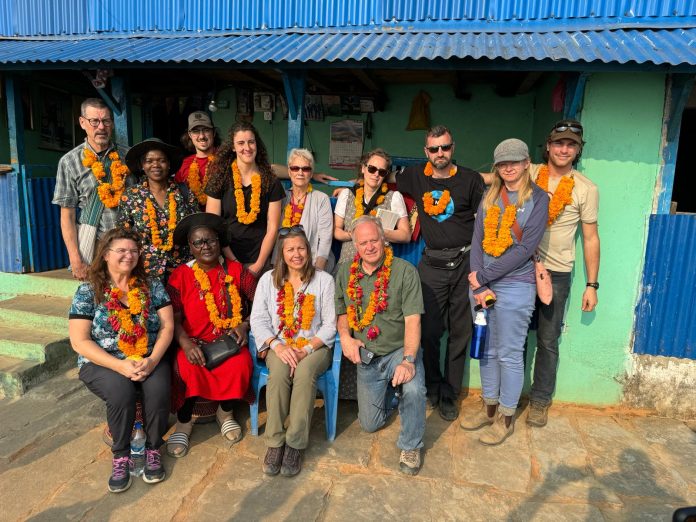
Two Birch Hills residents had a chance to travel abroad to see how grain grown in Canada helps support humanitarian projects in some of the world’s poorest places.
Steve and Jeannette Tomtene have been involved with Canadian Foodgrains Bank (CFB) growing projects in the Birch Hills area for nearly 20 years. In February, they travelled to Nepal, where CFB support has helped provide disaster relief and boost local agriculture.
“We wanted to understand a little more about how all the money that we’ve been generating with our project for the last 20 years is being used, and to learn a little bit about how it’s helping the people,” Steve said. “In this particular area, they’ve been hit with earthquakes in the past, and a big part of the Canadian Foodgrains Bank is disaster relief. After these earthquakes they were able to move in and (provide) some funding to help with the relocation of people and the rebuilding.”
The Tomtenes spent two weeks in Nepal, a country of more than 30 million people living in an area one-quarter the size of Saskatchewan. During their visit, they connected with the Mennonite Central Committee who were finishing an agricultural project in Lalitpur, just south of the Nepalese capital. The second week was spent with the Adventist Development and Relief Agency (ADRA) on a three-year agricultural project just getting underway.
Both Steve and Jeannette said each organization’s goal is to fund local projects and train local workers in agricultural practices that will help feed people long term, with support from the Canadian Foodgrains Bank.
“There’s already boots on the ground trying to help these people and so they’re not going in to create a whole new system,” Jeannette explained. “They’re going in and they’re partnering with the boots on the ground. It’s just really neat to see those relationships.”
Travelling around Saskatchewan is much simpler than Nepal. Remote areas in the mountainous country typically aren’t that far away, but they can take a long time to travel too because of the high elevation.
One project the duo visited was just 85 km away from where they were staying, but the drive out there took four hours because of the roundabout road they needed to travel.
Regardless of where they went or how long it took, the Tomtenes say they were greeted by friendly people everywhere. Most residents are eager to learn about new farming methods, and introduce new crops to the area.
“I was amazed at the generosity and the hospitality from the people,” Jeannette said. “They welcomed us with open arms.”
“It was quite satisfying to know that the works that’s been done really empowered them and gave them hope for their future,” Steve added.
Now back home, the Tomtenes say the trip has convinced them to redouble their efforts to see Canadian Foodgrains Bank projects continue in the Birch Hills area, but that’s going to be a challenge.
The Tomtenes were part of a group that donated their time to farm a quarter section of land for the Foodgrains Bank near Birch Hills. The proceeds from the crop sale were donated to the Foodgrains Bank, with the federal government matching the donation.
However, in 2023 the resident who donated the land sold it, leaving the group without a quarter section to farm. Steve and Jeannette hope they can change that in time for the 2024 growing season.
“It’s not something we can do alone,” Steve said. “We need to work with our community and see if we can inspire some others to get involved.”

